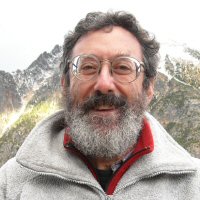OpEd: "Why Louisiana’s ecosystems should sue BP"
Published in the Houma Today newspaper, Lafourche Parish, Louisiana on July 15, 2010
by Thomas Linzey, Community Environmental Legal Defense Fund
For months, BP’s oil spill has dominated the news.
The blame game between the government and the corporation began mere minutes after the Deepwater Horizon explosion — the corporation blaming the regulators, the regulators blaming the corporation.
Been there, done that.
The only exceptional thing about the finger-pointing is that it isn’t exceptional at all.
Although it’s rarely said out loud, the regulators allow the energy corporations to write their own regulations — and when it becomes too expensive to comply with the regulations, the regulator simply exempts the corporations from them or the corporations simply rewrite the regulations to eliminate the added cost.
In the eyes of the regulators, after all, it’s the energy corporations that are the experts on methods for extracting oil, gas, and coal, not the government.
What gets missed in all of the blather is the recognition that “we the people” can’t protect ourselves through the regulatory system.
In fact, most of us aren’t even awake enough to understand that the regulatory system is used by corporations to legalize practices that would otherwise be harmful and illegal.
It’s not called “permitting” for nothing.
But that’s not the only problem with the way that the system works.
Consider this — for the past 3,000 years, nature and ecosystems have been defined under the law as mere property.
Whether private property — the land that you own; or property owned by government or the public — such as bayous, rivers, or zones of the ocean, nature is still defined as property by the law.
Rights, of course, can‘t belong to property — rights belong only to people. That means that when nature and ecosystems are destroyed, courts don’t inquire about how much it would cost to restore those ecosystems back to their undamaged state.
Instead, courts solely examine how much damage has been caused to the people or corporations whose use of that property has now been denied.
Which means that the natural environment (even though it may be the most damaged of all) is invisible to courts and judges.
With the BP spill, the only damage deemed compensable by the legal system is the financial damage caused to those who can’t use the Gulf ecosystem anymore.
But that’s not enough to make the coast of Louisiana whole.
The law has always recognized that damages awarded after an injury should be equal to the cost of remedying the injury.
Compensating fishermen and other businesses is a good and necessary thing, but it doesn’t come close to fixing the mess that has been made of sportsmen’s paradise.
Creating a system that makes ecosystems whole may not be as crazy as it sounds.
In 2009, the people of Ecuador adopted a new constitution recognizing that ecosystems themselves have a right to exist, flourish, and evolve.
Closer to home, over a dozen municipal governments in New Hampshire, Pennsylvania, Maine and Virginia have done the same. Those laws authorize residents to sue to restore damaged ecosystems, which, of course, allows them to depend on those ecosystems once again.
Municipal governments in the coastal regions of Louisiana, Alabama and Florida should consider adopting similar local laws, which would enable those governments and residents to hold BP to a standard well-recognized by the law — that of fixing what you have broken.
Without those laws, these nightmares will repeat themselves over and over again — and once again, we’ll be resigned to watching the oil coat our beaches and destroy the ecosystems upon which our livelihoods depend.
Viewable at: http://www.dailycomet.com/article/20100715/ARTICLES/100719641/-1/opinion?p=1&tc=pg
Thomas Linzey is executive director of the Community Environmental Legal Defense Fund (CELDF.org), which is based in Chambersburg, PA.
- Paul's blog
- Login or register to post comments
For a one-time donation click here:
To support Paul with monthly donation, select and click here:

 Friend Paul
Friend Paul